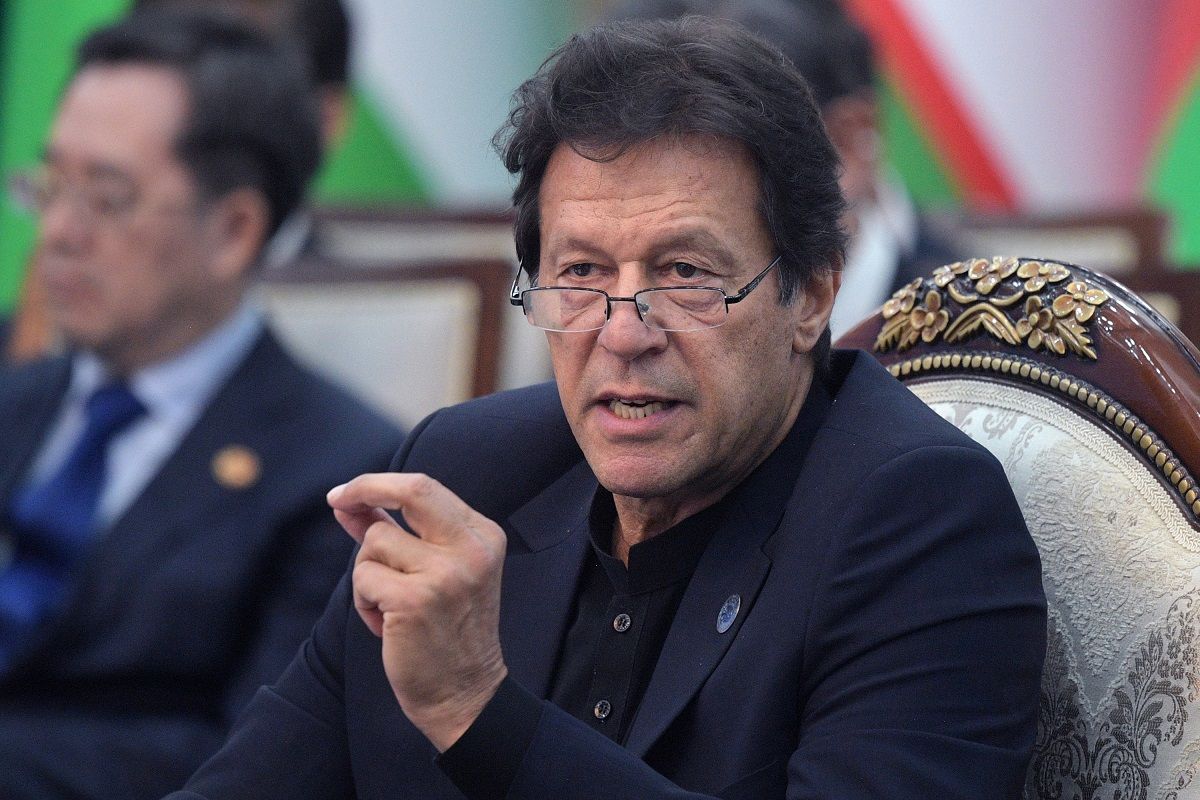Zuhaib Yousf Mir talks about Article 370 Abrogation
J&K People's Democratic Party leader Zuhaib Yousf Mir sheds light on the abrogation of Article 370 and its emotional impact on the people of Jammu and Kashmir.
Khan’s remarks come days after Union Defence Minister Rajnath Singh had said that India’s nuclear policy till date has been ‘No First Use’ but ‘what happens in future depends on the circumstances’.

Pakistan Prime Minister Imran Khan. (File Photo: AFP)
Amid tensions with India, Pakistan Prime Minister Imran Khan on Monday asserted that his country would never ever start a war with India and even not use nuclear weapons first.
“We will never ever start the war. Both Pakistan and India are nuclear powers and if tension escalates, the world will face danger,” he said while addressing a gathering of the Sikh community at the Governor’s House in Lahore.
Advertisement
“…I want to tell India that war is not a solution to any problem. The winner in war is also a loser. War gives birth to a host of other issues.”
Advertisement
His comments come days after Khan in an opinion piece in the New York Times argued that it was urgent to begin discussions while a “nuclear shadow” hovers over South Asia.
India-Pakistan relationship is now at its lowest point with New Delhi abrogating Article 370, that granted special status to Jammu and Kashmir.
On August 14, Pakistan Prime Minister Imran Khan had termed India’s move to revoke special status to Jammu and Kashmir a “strategic blunder” and said that the move will cost New Delhi “heavily”.
Khan had also warned of “Pulwama-like incidents to happen again”.
Following India’s move on Kashmir, Pakistan decided to downgrade diplomatic relations with India over the Kashmir move. It expelled Indian High Commissioner Ajay Bisaria and suspended trade with India.
In a series of retaliatory measures, Islamabad suspended the Samjhauta Express and Thar Express services operating between Pakistan and India.
Earlier last week, Pakistan Railways Minister Sheikh Rashid Ahmed had reportedly predicted a “full-blown war between Pakistan and India likely to occur in the month of October or November”.
According to reports, Ahmed, while addressing a ceremony in Rawalpindi, said that the war with India will be the “last this time”.
Both India and Pakistan have not engaged since January 2016 terror attack on the Indian Air Force base at Pathankot by Pakistan-based terrorists, with New Delhi maintaining that talks and terror cannot go together.
India has maintained that there is no possibility of negotiations unless Pakistan stops financing and recruiting terrorist groups.
Relations between the two nations further deteriorated after a Pakistan-based Jaish-e-Muhammed (JeM) terror group’s suicide bomber killed 40 CRPF personnel in Jammu and Kashmir’s Pulwama district on February 14 this year. Following this, the Indian Air Force carried out a counter-terror operation, hitting the biggest JeM training camp in Balakot’s Khyber Pakhtunkhwa province in early hours of February 26.
The next day, Pakistan Air Force retaliated and downed a MiG-21 in aerial combat and captured IAF pilot Abhinandan Varthaman, who was handed over to India on March 1.
The Pakistan Prime Minister, recalling his previous telephonic conversation with his Indian counterpart Narendra Modi, said: “I told him that there are similar circumstances both in Pakistan and India. I told him about climate change. We are sitting on a ticking bomb. If we do not address this issue (climate change) there will be a scarcity of water (in both countries).
“I told him that we together can solve the Kashmir dispute through dialogue.”
Imran Khan claimed he made efforts (for talks) alleging that India was acting like a superpower. “…India asked us to do this and not to do that. It was giving us dictation.”
Weeks after Narendra Modi assumed prime ministership for the second time, his Pakistani counterpart Imran Khan had in June written a letter offering dialogue to reconcilable problems, including that of the disputed Kashmir region.
Khan’s remarks, during an interaction with the Sikh community, come days after Union Defence Minister Rajnath Singh had said that India’s nuclear policy till date has been ‘No First Use’ but “what happens in future depends on the circumstances”.
Advertisement